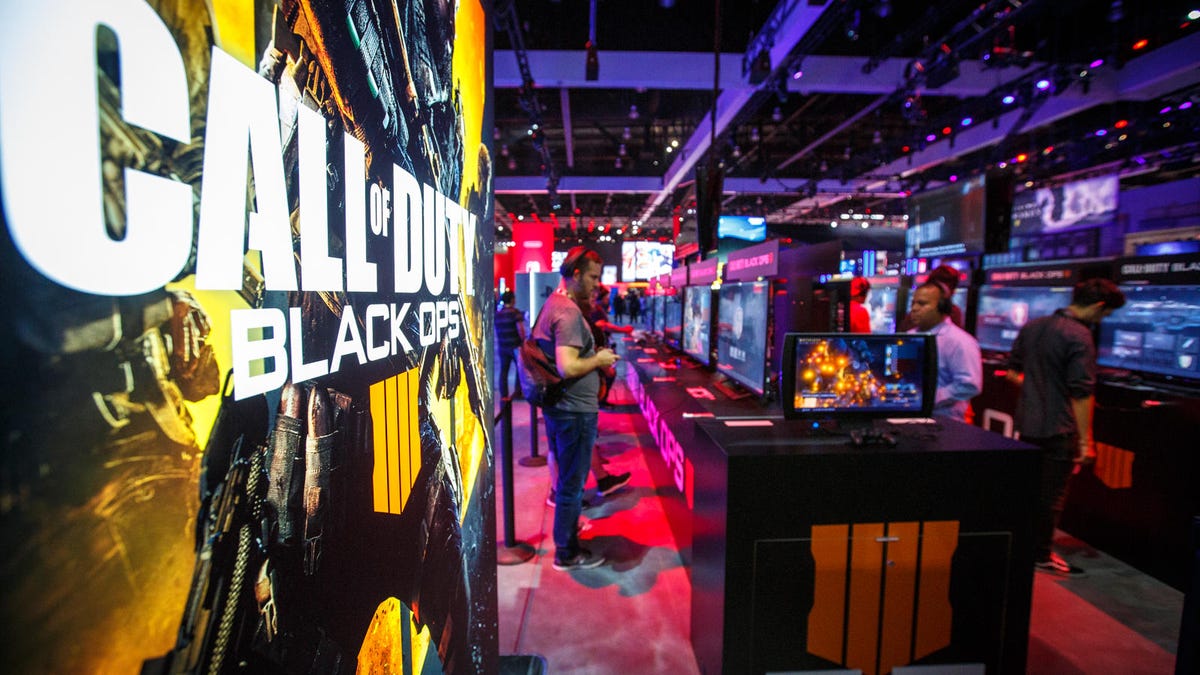E3's sequel problem: The sequel
Commentary: The same games we complained about being too sequel-happy *eight years ago* are getting still more installments.

Gears of War 3, Call of Duty: Black Ops, Fallout: New Vegas, Halo Reach. Eight years ago, those were some of the examples of games I called out for contributing to a serious case of video game industry sequelitis, leading to a lack of originality across all the different game platforms.
And what did I see at E3 2018? Gears of War 5, Call of Duty: Black Ops 4, Fallout 76 and Halo Infinite.
Fallout 76 goes online in a new twist.
Clearly, originality is still not in fashion. It's appropriate, then, to go back to how I explained this problem back in 2010:
It's overly simplistic to blame a conceptual lack of originality for the deficit of new ideas, stories and characters. Video games generally don't function under the auteur theory that many of the best films do, crafted by a singular creative vision (with a few high-profile exceptions); instead they more often are the ultimate example of art by committee. Game developers essentially create "work for hire" on behalf of publishers, which in turn resemble nothing so much as the classic 1940s Hollywood studio system, where studio bosses pulled the strings and set the agenda.
If anything, the games industry feels more risk-averse than ever. And, to be fair, game publishers are just following Hollywood's lead. Disney's Marvel Cinematic Universe juggernaut is essentially a 20-strong (and counting) sequel machine, and the same company is similarly amping up the Star Wars series to crank out at least one flick a year, too. The Harry Potterverse has a new Fantastic Beasts spinoff series, and the Fast and Furious gang is getting one, too. After all, why rely on one tentpole to draw in audiences with a taste for the familiar, when you can have two -- or more?
In the gaming world, that's how you end up with a slate like we had at E3 2018, where nearly every game had an explicit or implicit numeral appended to its title. Besides the four big examples already cited, the many sequels or spin-offs I spotted at the show included:
- Assassin's Creed Odyssey
- Kingdom Hearts 3
- Super Smash Bros. Ultimate
- The Last of Us Part 2
- Shadow of the Tomb Raider
- Just Cause 4
- Dying Light 2
- Metro: Exodus
- Forza Horizon 4
- Battlefield 5
- The Division 2
- Beyond Good and Evil 2
- Rage 2
- Devil May Cry 5
- Wolfenstein: Youngblood
And that's when you're not looking at straight-up remakes, such as Resident Evil 2 or Final Fantasy VII.
To avoid being drowned in a sea of recycled ideas (entertaining as many of them may be), let's not forget to call out new and original game ideas, worlds and characters when we see them.
Death Stranding's Norman Reedus, in wax figure form.
Death Stranding, from Hideo Kojima -- one of the few to earn a reputation as a game auteur -- gives me hope, as it was one of the most anticipated games of the show, thanks to its extremely strange vibe and mysterious story, and a star turn by actor and CNET Magazine cover star Norman Reedus.
There's also Anthem, a new take on BioWare's space-based action RPG concepts, Cyberpunk 2077, an ambitious-looking sci-fi game and The Sinking City, which offers a new take on a Lovecraft-inspired world.
So, while the problematic crutch of video game sequels isn't getting any better, there's still hope.
Of course, the gaming industry refers to fresh ideas like these as "new IP." That stands for "new intellectual property" -- a new vein of characters, situations and locations that companies can mine for riches, squeezing extra roman numerals into a game's title for decades to come.
That's the problem with fighting sequel burnout: It ends up leading to more sequels.
E3 2018: Everything you need to know.
E3 2018 coverage at CNET: All of our E3 2018 coverage in one place.
E3 2018 coverage at GameSpot: Wall-to-wall coverage of the show from our sister site GameSpot.
E3 2018 coverage at Giant Bomb: Still more commentary and news from E3, from our colleagues at Giant Bomb.

